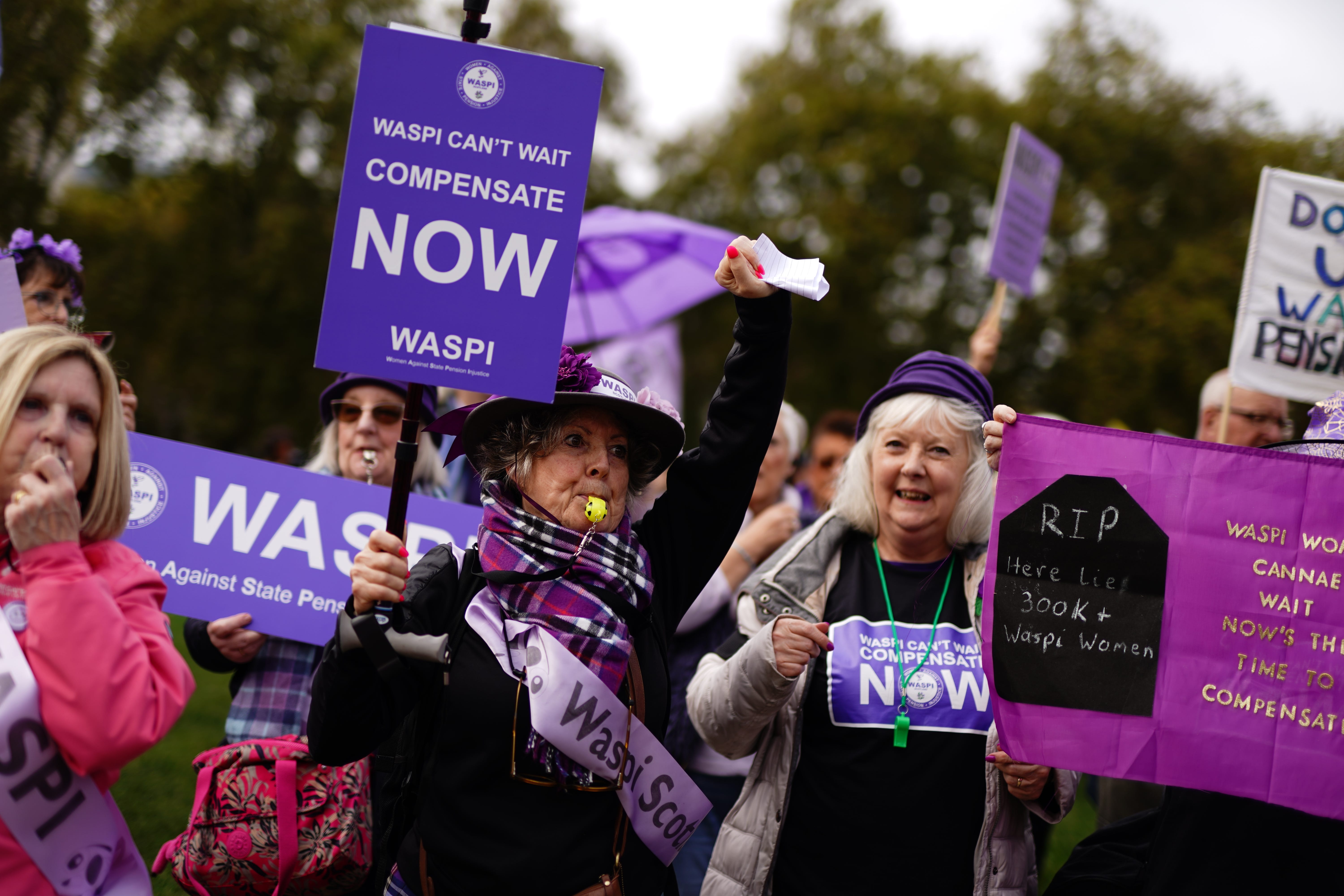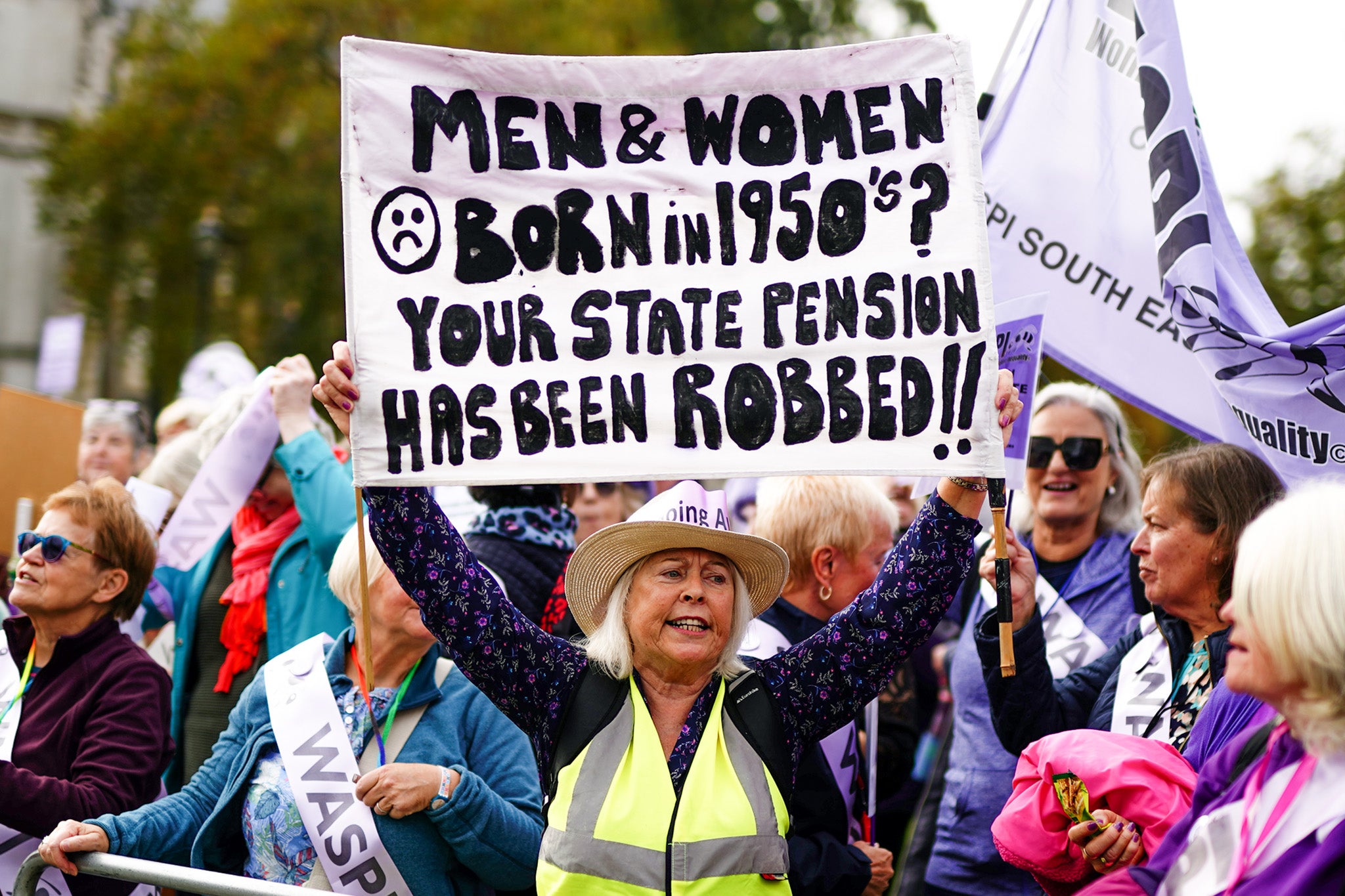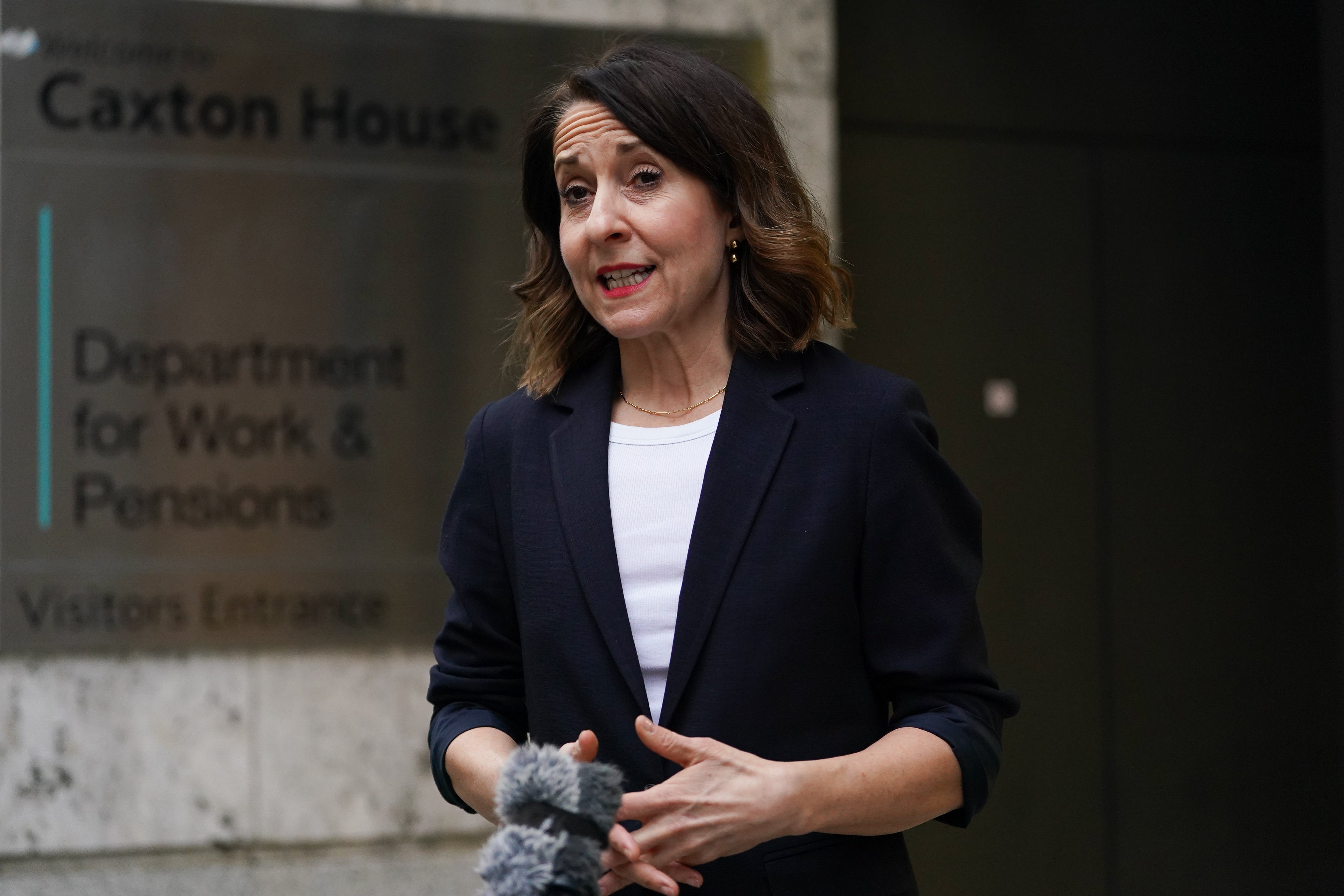Waspi compensation: What does the government announcement mean for women hit by state pension changes?
Everything you need to know about the Waspi campaign following work and pensions secretary Liz Kendall’s latest update

Your support helps us to tell the story
From reproductive rights to climate change to Big Tech, The Independent is on the ground when the story is developing. Whether it's investigating the financials of Elon Musk's pro-Trump PAC or producing our latest documentary, 'The A Word', which shines a light on the American women fighting for reproductive rights, we know how important it is to parse out the facts from the messaging.
At such a critical moment in US history, we need reporters on the ground. Your donation allows us to keep sending journalists to speak to both sides of the story.
The Independent is trusted by Americans across the entire political spectrum. And unlike many other quality news outlets, we choose not to lock Americans out of our reporting and analysis with paywalls. We believe quality journalism should be available to everyone, paid for by those who can afford it.
Your support makes all the difference.The government has announced it will not compensate up to 3.8 million women affected by changes to the state pension age.
Work and pensions secretary Liz Kendall rejected calls for the individuals to be awarded between £1,000 and £2,950 each, while claiming she understood why many were unhappy about the issue.
"I know there are women born in the 1950s who want and deserve a better life, they have worked hard in paid jobs and in bringing up their families,” she said.
The Labour government is now facing a barrage of criticism from MPs and campaigners over the decision, some of which is coming from within its own party.
Ms Kendall said the government does not believe paying a flat rate to women at a cost of up to £10.5 billion would be a fair or proportionate use of taxpayers’ money.
So what does this mean for the millions of women affected by the changes?
What did the five-year investigation find?
The Parliamentary and Health Service Ombudsman (PHSO) released the findings of its five-year investigation on 21 March. It was a damning assessment of the Department for Work and Pensions’ (DWP) handling of the issue.
The Women Against State Pension Inequality (Waspi) group’s claim of the changes being poorly communicated was partly upheld by the PHSO, with the report stating “too many people did not understand their own situations and how the new State Pension affected them personally”.

The report called the DWP’s failure to respond to official feedback on the issue “maladministration”.
It also covered the DWP’s complaint-handling procedure and found the government department “did not adequately investigate or respond to the complaints it was considering” – another maladministration.
However, while the PHSO report accepted the DWP’s poor communication caused some women to lose “opportunities to make informed decisions”, it also made clear it does not believe this led to “direct financial loss”.
The government’s reasoning for not providing compensation
The government said it has accepted the Ombudsman’s finding of maladministration and has apologised for the 28-month delay in writing to 1950s-born women.
But it said evidence showed only one in four people remember receiving and reading letters that they were not expecting and that the great majority of 1950s-born women did know that the state pension age was changing.
The government said a blanket compensation scheme, which could cost taxpayers up to £10.5 billion, cannot be justified.
It would also be impossible to deliver a tailored compensation scheme taking into account individual circumstances that is fair, value for money and feasible, it added.

In a statement, Ms Kendall said: “These two facts: that most women knew the state pension age was increasing and that letters aren’t as significant as the Ombudsman says, as well as other reasons, have informed our conclusion that there should be no scheme of financial compensation to 1950s-born women, in response to the Ombudsman’s report.”
She added: “The alternative put forward in the report is for a flat rate compensation scheme, at level four of the Ombudsman’s scale of injustice, this would provide £1,000 to £2,950 per person at a total cost of between £3.5 billion and 10.5 billion.
“Given the vast majority of women knew the state pension age was increasing, the government does not believe paying a flat rate to all women at a cost of up to £10.5 billion would be a fair or proportionate use of taxpayers’ money.”
There were shouts of “shame” when Ms Kendall made the announcement in the Commons.
What campaigners are saying
Campaigners have reacted with anger as the government announced it would not compensate the nearly 3.8 million women affected by the changes.
Angela Madden, chairwoman of Women Against State Pension Inequality (Waspi) said: “The government has today made an unprecedented political choice to ignore the clear recommendations of an independent watchdog which ordered ministers urgently to compensate Waspi women nine months ago.
“This is a bizarre and totally unjustified move which will leave everyone asking what the point of an ombudsman is if ministers can simply ignore their decisions.
“It feels like a decision that would make the likes of Boris Johnson and Donald Trump blush.”
She described an action plan to avoid such mistakes in future as “an insult both to the women” and to the investigation previously carried out by the Parliamentary and Health Service Ombudsman (PSHO) into how changes to the state pension age were communicated.
Ms Madden said: “An overwhelming majority of MPs back Waspi’s calls for fair compensation and all options remain on the table. Parliament must now seek an alternative mechanism to force this issue onto the order paper so justice can be done.”
Ms Kendall instead pledged the government would protect the pensions “triple lock”, drive down NHS waiting lists and deliver “the jobs, homes and opportunities your families need to build a better life”.
Join our commenting forum
Join thought-provoking conversations, follow other Independent readers and see their replies
Comments